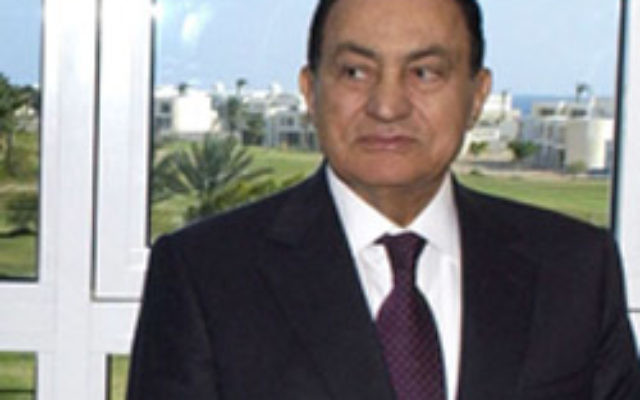Israel anxiously monitors Egyptian unrest
ISRAELI Prime Minister Binyamin Netanyahu issued a call for stability in Egypt as political unrest undulated through Egyptian cities from protestors demanding the immediate
resignation of long-time Egyptian President Hosni Mubarak.
Earlier this week, for the first time since the 1979 peace treaty between the two countries, Israel agreed to allow Egypt to deploy its army in the southern Sinai in an effort to stabilise that region.
While Mubarak’s relationship with Israel was not a motivating factor behind the demonstrations, by mid-week Israel’s tacit support for Mubarak was starting to draw the ire of protestors, who vowed such behaviour would further alienate Israel from the Egyptian population.
Looking at the broader picture, Israeli commentators expressed concern that the current crisis in Egypt may lead to – at the minimum – a downgrade in Cairo’s relations with Jerusalem under a new leader associated with the current regime, and at worst, a dissolution of the peace agreement at the hands of an Islamic government led by Egypt’s largest opposition faction, the Muslim Brotherhood.
Meanwhile, here in Canberra, the Australian Government is continuing to monitor the situation on the ground as it works to evacuate Australians from the country.
The Department of Foreign Affairs and Trade has advised against travel to Egypt and for those in the country to leave if it is safe to do so, with two special Qantas charter flights having been scheduled on Wednesday and Thursday.
In a press conference in Canberra on Monday, Prime Minister Julia Gillard said Egypt should “recognise the legitimate aspirations” of its people.
“We understand the aspirations of the people of Egypt for freedom, for democracy, for the kind of things that in Australia we largely take for granted,” she said.
“It is not for me to determine what should happen. The essence of people being able to participate in a democracy and to have the benefits of the kind of freedoms that we take for granted here is that the people of Egypt need to shape their future.”
Foreign Minister Kevin Rudd told ABC Lateline on Monday that it was too difficult to predict how the political situation in Egypt would unfold. But he urged the Egyptian Government to exercise peaceful restraint in dealing with the protesters.
“On top of that, we are further calling upon the Government of Egypt to exercise and to implement necessary reforms and changes in the political system there to accompany the legitimate grievances being articulated by the Egyptian people,” he said.
Rudd added that the current situation within Egypt had urgent consequences for the peace process between Israel and the Palestinian Authority.
“One of the elements involved in achieving a Middle East peace settlement of course is the wider support for a comprehensive settlement by surrounding Arab countries,” he said.
“I believe, therefore, that the political fluidity in Egypt now presents a whole new dynamic which our good friends in Israel must take into account in moving as rapidly as possible in my view toward a comprehensive settlement with our friends in the Palestinian Authority.”


comments